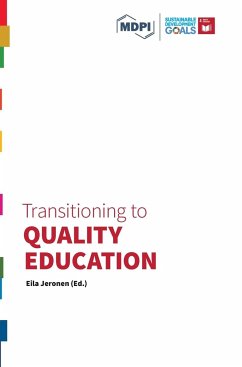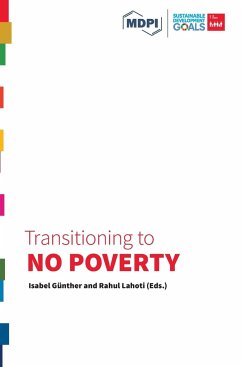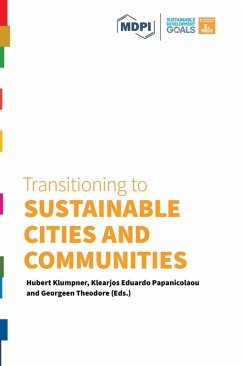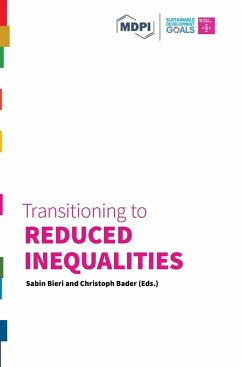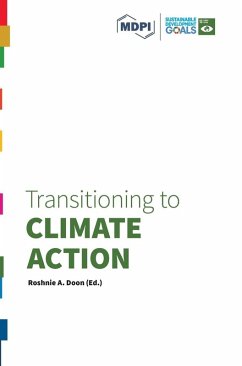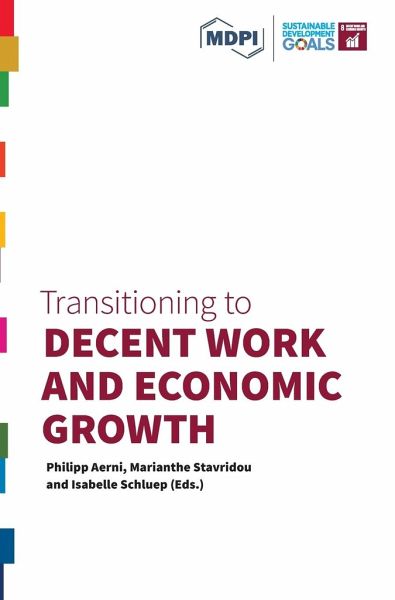
Transitioning to Decent Work and Economic Growth
Versandkostenfrei!
Versandfertig in 1-2 Wochen
92,99 €
inkl. MwSt.

PAYBACK Punkte
46 °P sammeln!
According to the United Nations Development Program (UNDP) and the United Nations Conference on Trade and Development (UNCTAD), the private sector plays a key role in achieving the UN Sustainable Development Goals (SDGs). After all, sustainable and inclusive economic growth is essential to enable more people to participate in global prosperity. Encouraging entrepreneurship and job creation are key to SDG 8, as are effective measures to eradicate forced labor, slavery, and human trafficking. Since more than 90 percent of jobs are created by the private sector, more attention must be paid to ent...
According to the United Nations Development Program (UNDP) and the United Nations Conference on Trade and Development (UNCTAD), the private sector plays a key role in achieving the UN Sustainable Development Goals (SDGs). After all, sustainable and inclusive economic growth is essential to enable more people to participate in global prosperity. Encouraging entrepreneurship and job creation are key to SDG 8, as are effective measures to eradicate forced labor, slavery, and human trafficking. Since more than 90 percent of jobs are created by the private sector, more attention must be paid to entrepreneurs that help create dynamic and responsible enterprises that often generate positive externalities for society and the environment through investments in scalable innovations and a commitment to local embeddedness. As such, they help lift people out of poverty through new and relatively well-paid jobs and enable local economies to become more sustainable through global value chain integration. Transitioning to Decent Work and Economic Growth explores the prospects for SDG 8 in the Global South as well as the Global North. It especially considers the positive role the private sector may play as an enabler of human rights, creator of decent work and engine for inclusive development in different contexts. Further, it examines how the institutional environment can facilitate economic change, which may lead to social empowerment and enhanced economic opportunities. A key question the volume explores, is how-in an entrepreneurial context-innovation and scientific knowledge contribute to the creation of scalable innovation that help to de-couple economic growth from the use of natural resources.





